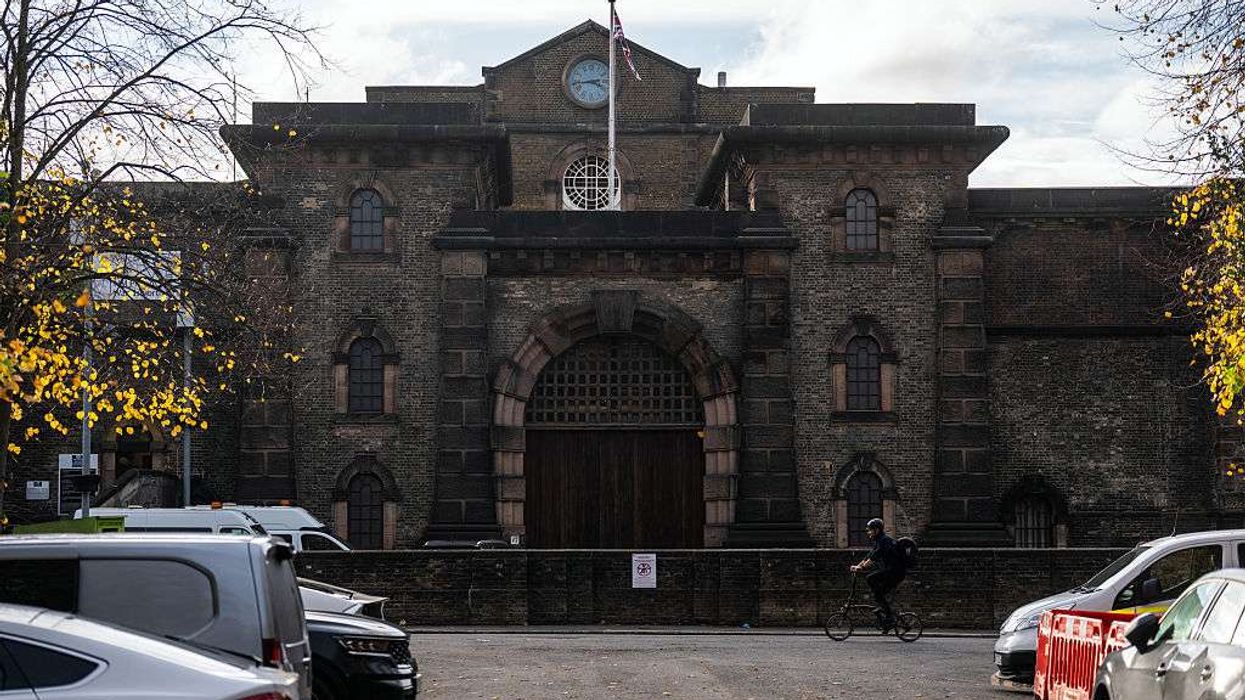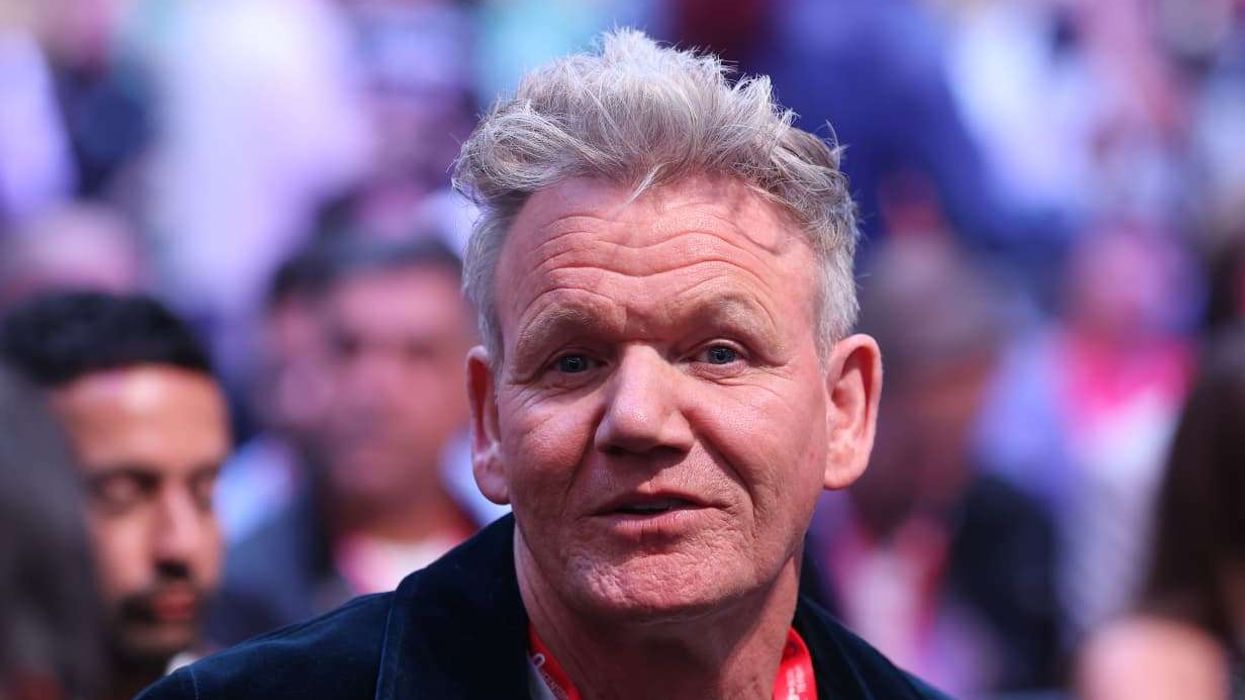By Amit Roy
THIS is a sad story, which is also a very inspiring one, about how the NHS did its best to look after Hussein Amiri, who arrived in Britain in 2001 as a 14-year-old refugee from Afghanistan with his parents, Mohammed and Fariba, and his younger brothers, Hamed and Hessam.
The family fled Herat after the Taliban put out an execution order for Fariba, who had made a speech about women’s rights. Hamed has written a book about the family’s dangerous journey, ultimately to safety, in Cardiff. They picked Britain because it was one of only two countries – the US was the other – with the expertise to treat Hussein, born with a severely defective heart.
Hamed’s book, The Boy with Two Hearts: A Story of Hope, has focused in part on the way Hussein was looked after by the NHS. It was read by the actor Sanjeev Bhaskar on BBC Radio 4 as “Book of the Week” from June 29 to July 3 and is also due to be turned into a play by the Wales Millennium Centre.
Hamed sent Eastern Eye a long list of what was wrong with his brother. There were 19 items which the NHS had to deal with, with Hussein going to hospitals in Cardiff, Bristol, Southampton and Newcastle. “Wherever we went, we had people who didn’t know us, couldn’t speak our language (Farsi), understand anything about us,” he said.
“But they saw none of that. All they wanted to do was to look after my brother and make him better. Language, culture, all our stuff, didn’t really matter.”
Hussein was a patient with Navroz Masani, an Indian origin consultant cardiologist at the University Hospital of Wales in Cardiff, about whom Hamed says in the book: “Hussein’s visit to Dr Masani, the cardiologist at the hospital continued, and he had more ECGs, more echoes and more medication. Dr Masani had become like a member of the family.”
The cardiologist explained Hussein’s condition: “Essentially, he was born with a part of his heart missing. The heart normally has four chambers, two chambers on the left, which pump blood to the body, and two chambers on the right, which pump blood to the lungs. And he was missing the pumping chamber to the lungs. So, he only had three chambers, not four.”
Hussein had to undergo “very complex treatments, very expensive in many ways. And, you know, I don’t think there was any question whatsoever that we would treat Hussein differently from anyone else,” Dr Masani said.
Born in London in 1964 to a Parsi dentist father and Hindu architect mother from the old Bombay who arrived in Britain in the 1950s, Dr Masani’s older sister, younger brother and daughter also work for the NHS.
He described one of Hussein’s conditions, tricuspid atresia: “It’s not something you can survive without some sort of operation.
“Hussein had two operations, actually, before he came to the UK – one to get through infancy and the other (in India) for getting through childhood. That still left him with a very abnormal heart and a very abnormal circulation.
“Unfortunately, the heart that he had despite those operations, when we were getting to know him as a young adult, was already starting to struggle and to fail. And really the list of diagnoses that you’ve got, following the first couple, basically are things going wrong with his heart and his health as a result of that. Those are all progressive problems and progressive operations were needed to try and maintain his heart function for as long as we could.”
Dr Masani added: “Everything we did in the UK was to maintain and increase his quality and quantity of life. And he was a fantastic guy and he went to university and got a degree.
“He had a good quality of life. I’m sure he would have died many, many years earlier if we hadn’t done all the things we did. But ultimately, we couldn’t save him. The ultimate requirement was for a heart transplant (and a simultaneous liver transplant). We never got him into a position where he could have that.”
Despite his severe health problems, Hussein became a hospital governor, as did his brother Hessam.
Dr Masani said: “It’s not something I discussed with him. He and his brother were interested in giving something back. And it’s pretty much a testament to what an extraordinary family they are. Always interested in giving something back, always interested in using the experience that they were going through to help others.”
Dr Masani was with Hussein when he died, aged 31, on July 11, 2018: “Yes, I was. It was very important to me. I know that we did absolutely everything we could. And we had a little final moment together. And I spent a little bit of time with the family as they gathered round. I’m glad I was there. I was very attached to him.”
He is touched Hamed has mentioned him by name in the book.
“The reason I haven’t read it is because it’s a bit difficult to read stories about patients who’ve been close to you and who have passed away. I haven’t had the courage to read it just yet.”
Hamed, 30, and working in IT (Hessam is 26) said when Hussein died, “everyone in the ward cried. Two nurses who knew him for years took a day off for his burial. I already knew anyway he was more than just a patient for them. NHS workers are people who care and love their patients.”
On Hamed’s list were the following: “Tricuspid atresia; ventricular septal defect; pulmonary stenosis; Double outlet left ventricle; neonatal BT shunt; classical Fontan operation, 1991; Fontan revision with insertion of 21mm Carbomedics aortic valve prosthesis and bi-atrial MAZE, Gortex extra cardiac conduit, epicardial pacemaker implantation 2006, Mr Haw, Southampton; Mean Fontan pressure of 11mmHg (catheterisation, Southampton 2014); recurrent atrial tachycardia post-op (treated with propafenone and bisoprolol); significant LV dysfunction; prolonged PR interval (Wenckebach at rate >110 beats per minute); high threshold V lead (>5 volts with pacemaker box change, May 2011); propafenone toxicity causing pacemaker failure; atrial tachycardia at the time of febrile illness on January 21, 2017; epicardial pacemaker box change 26/05/2017, Southampton (Boston 2011); high impedance ventricular pacing lead; recent chest infection and current right pleural effusion with some bilateral ankle oedema; inpatient heart failure treatment in Southampton in January 2018, and then in Cardiff (April, May, June 2018); ongoing assessment for heart transplantation (also potential heart liver transplantation is being considered, and he is under workup and MDT discussion and outcome is currently expected).”













